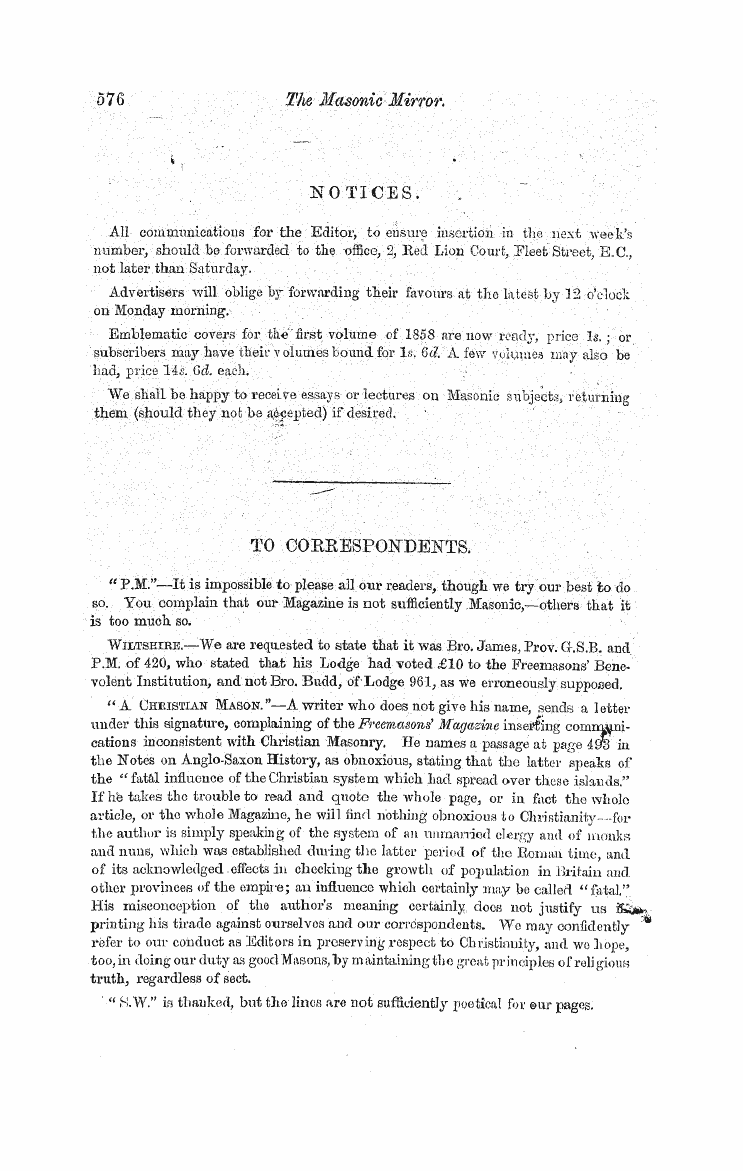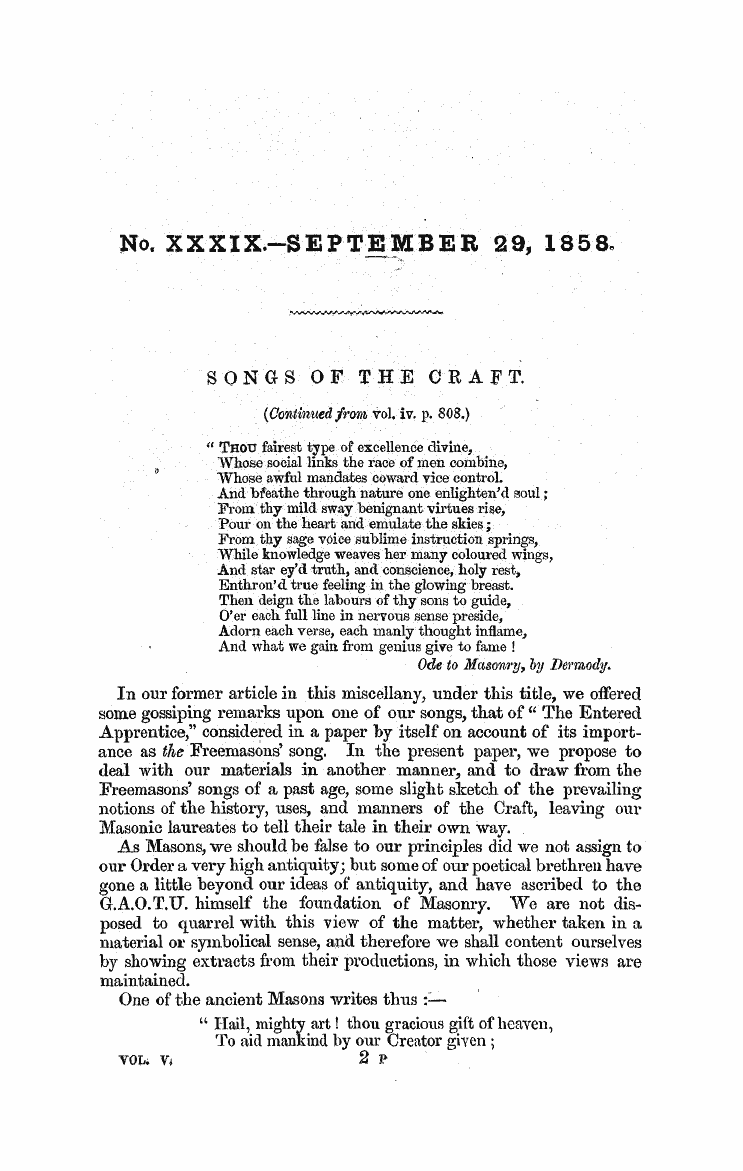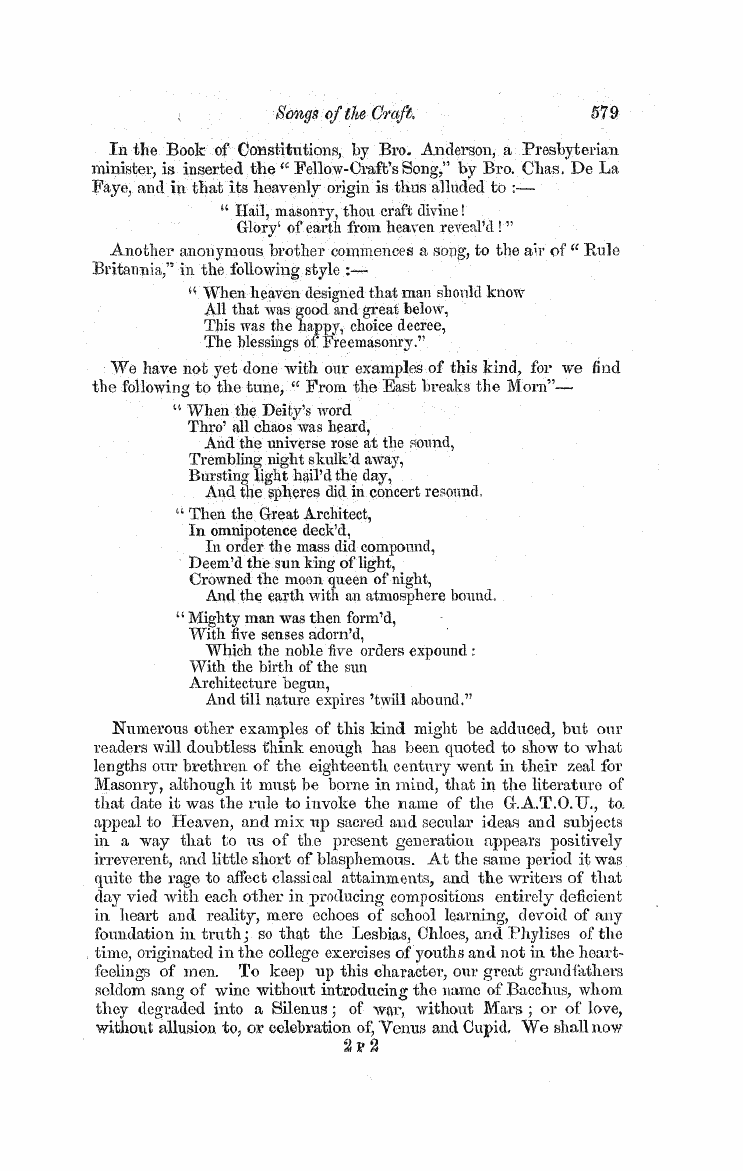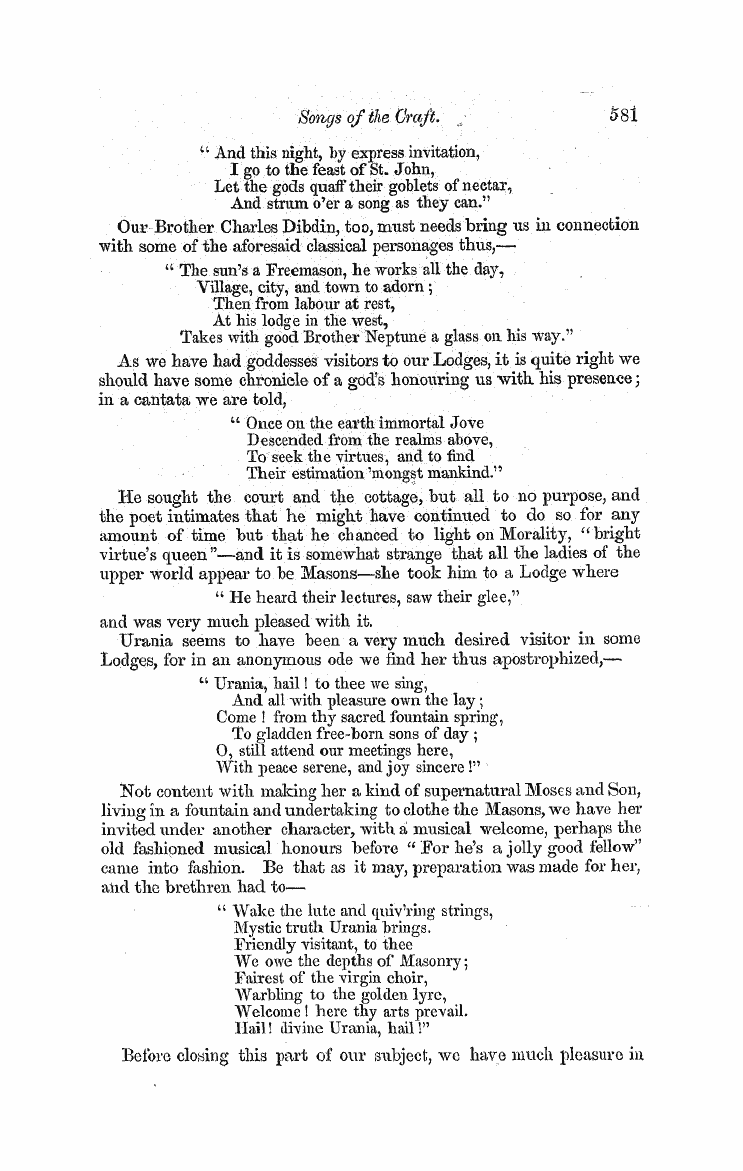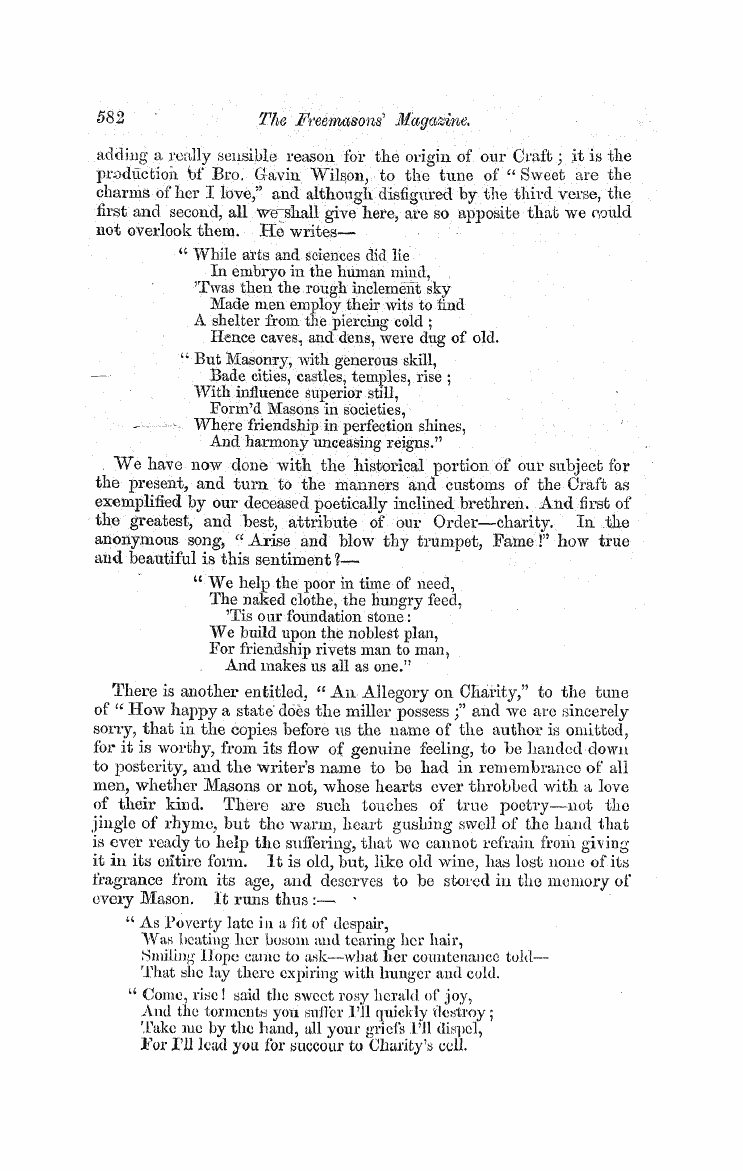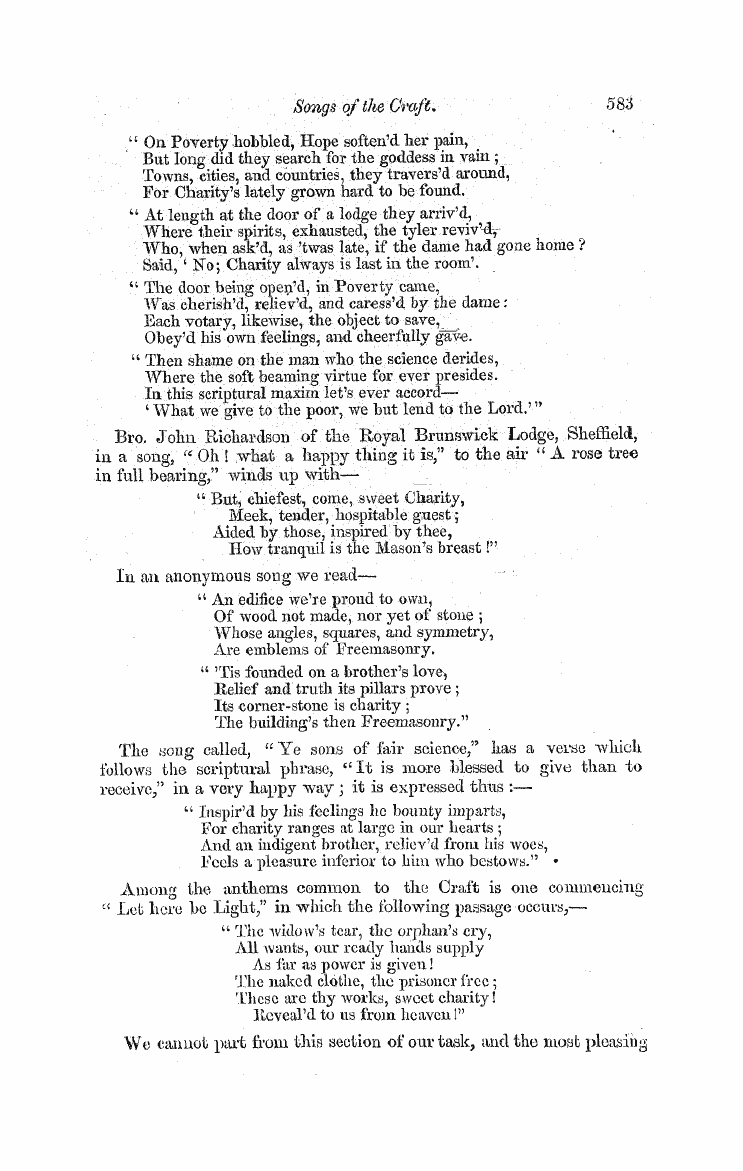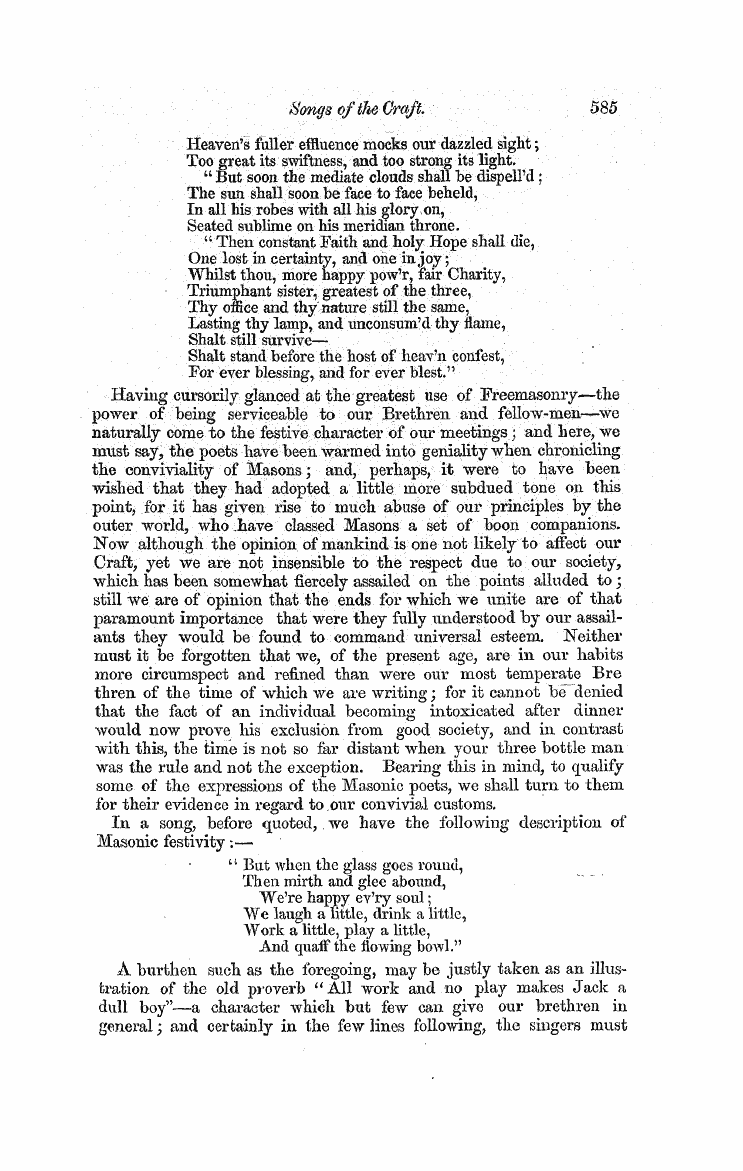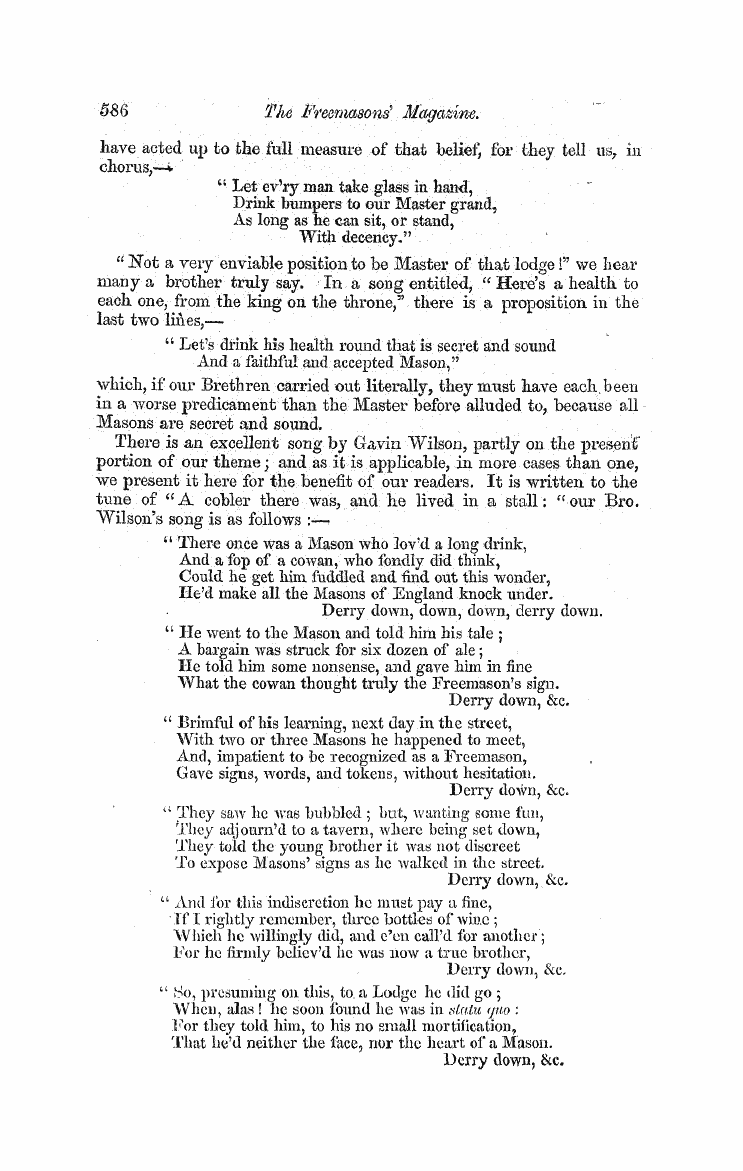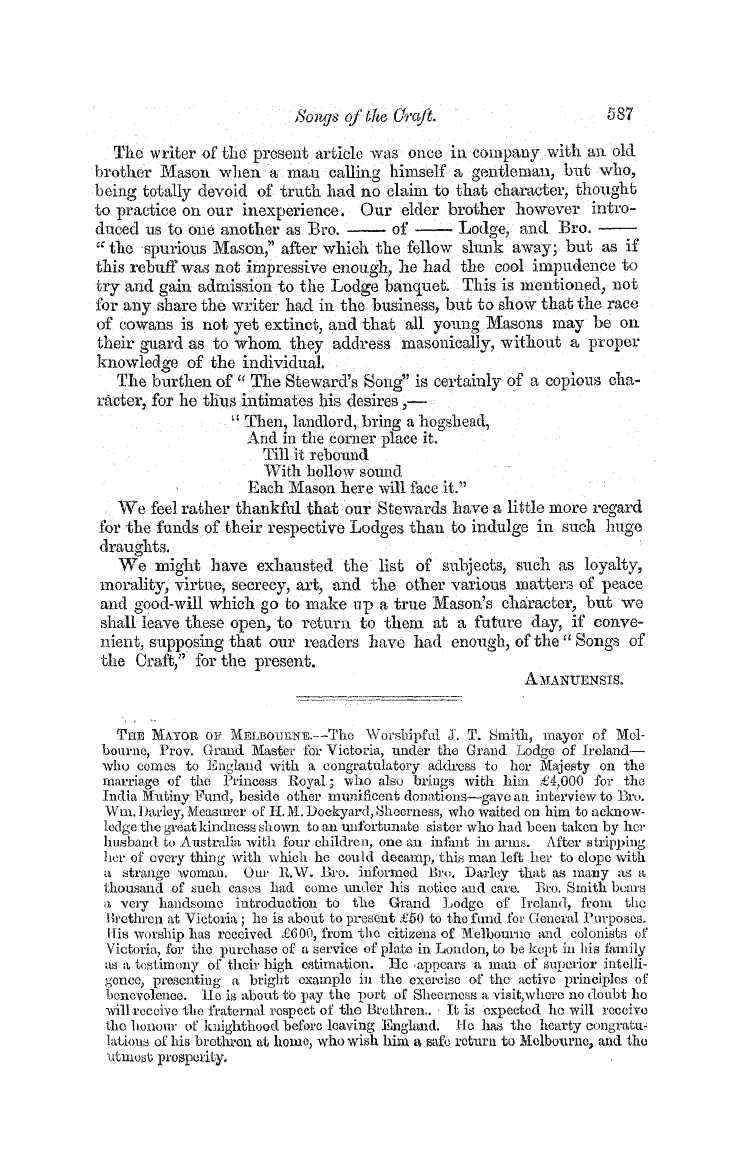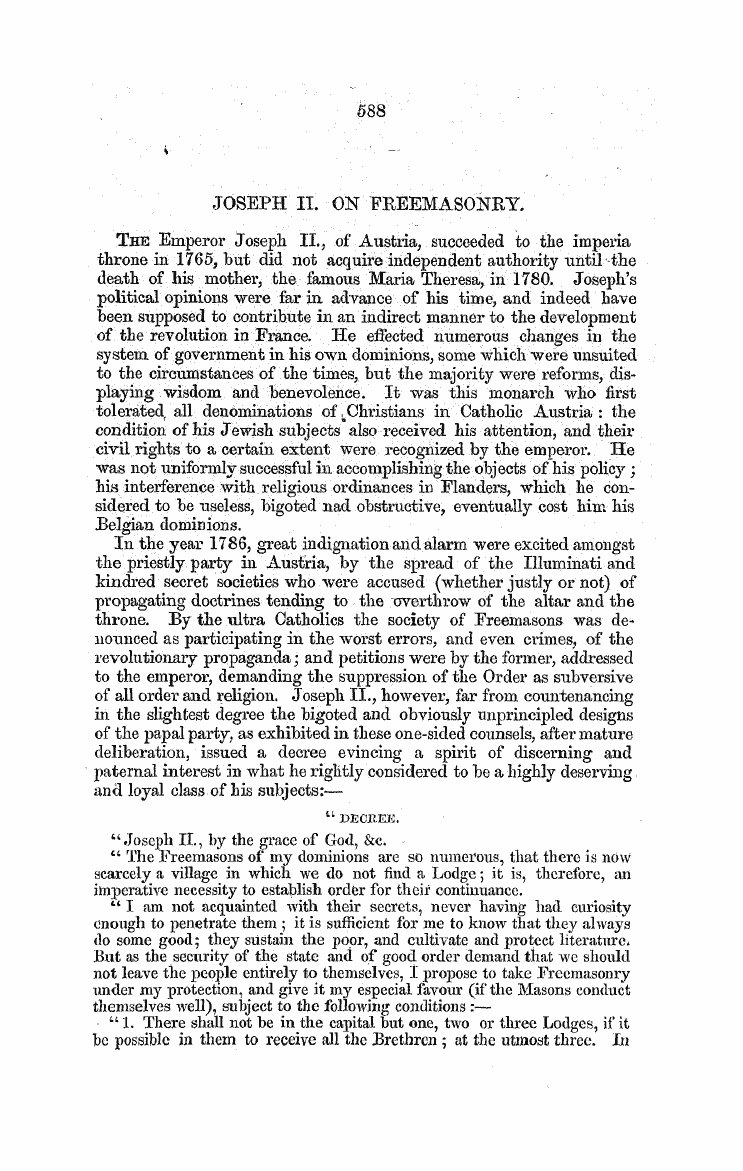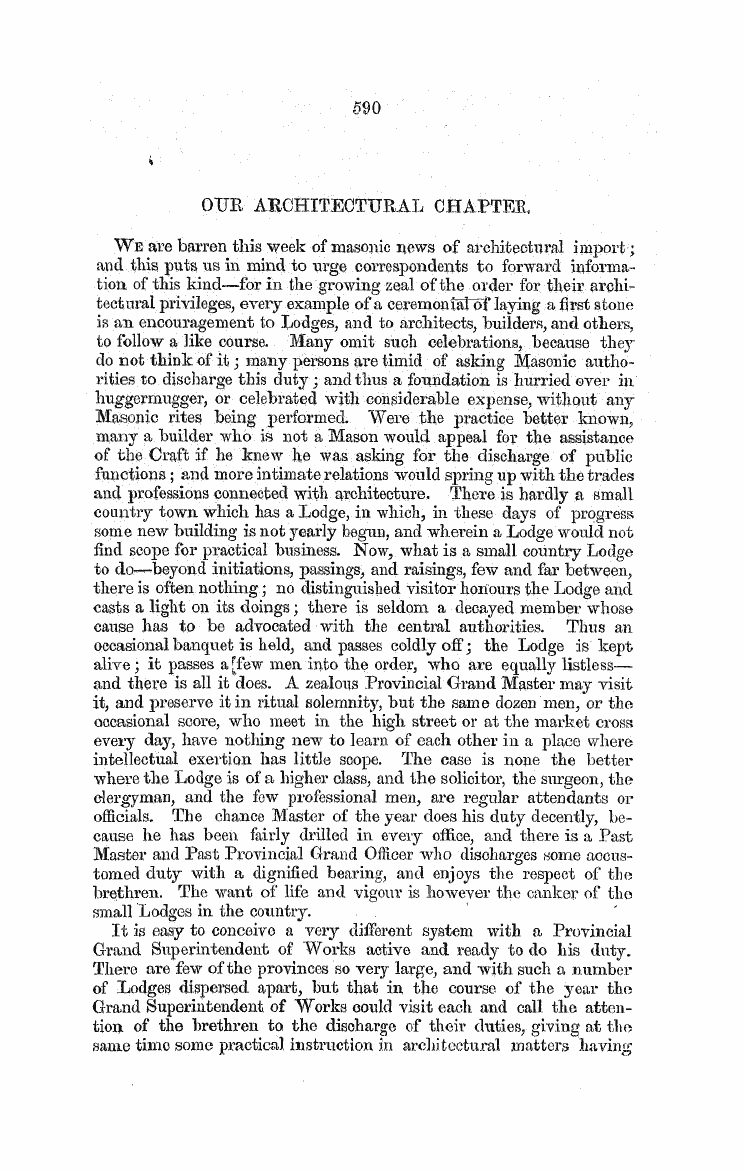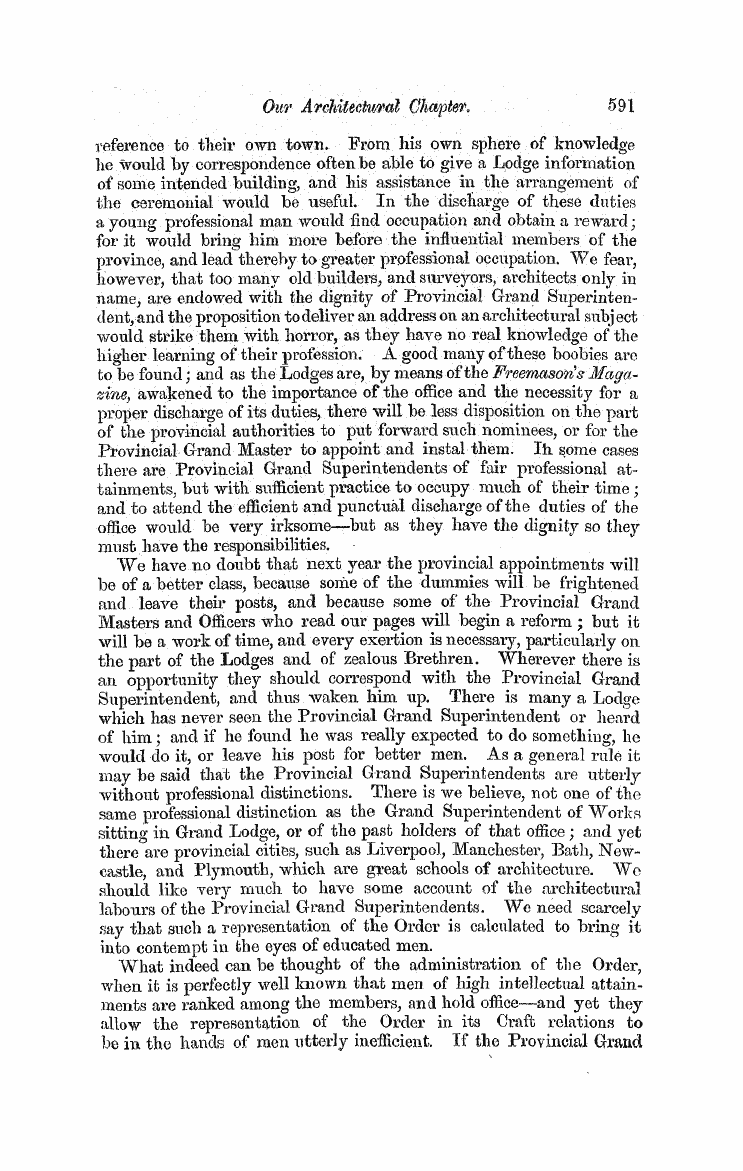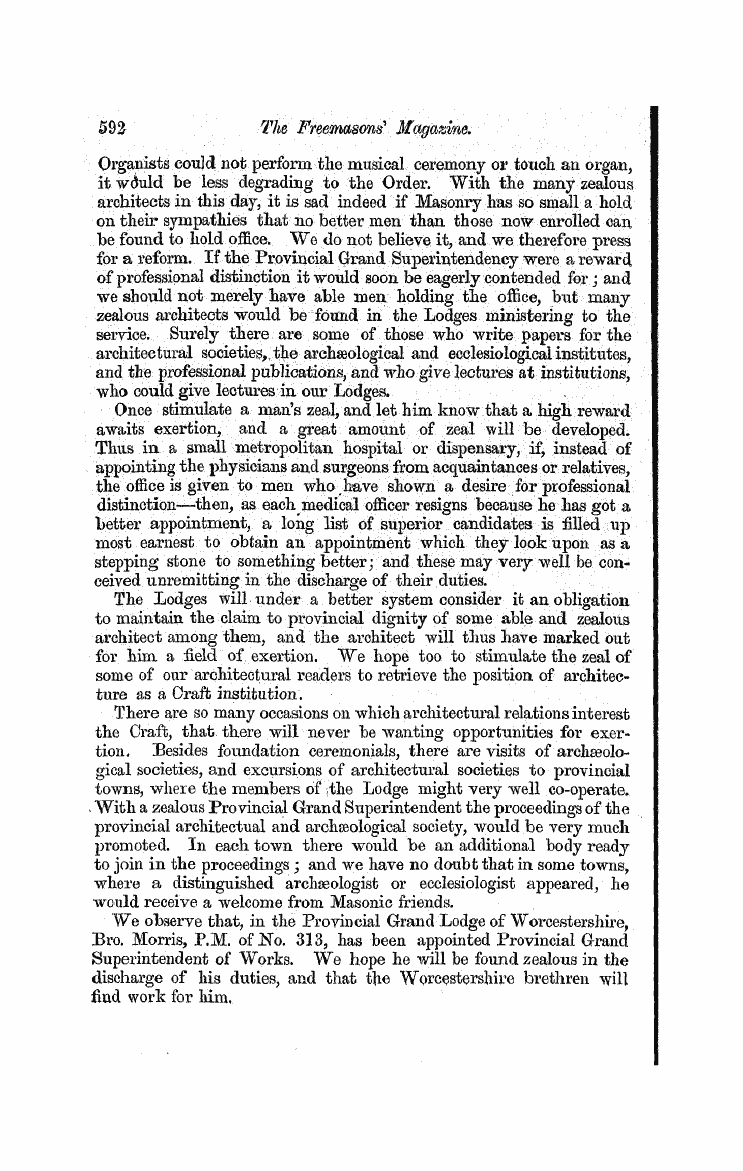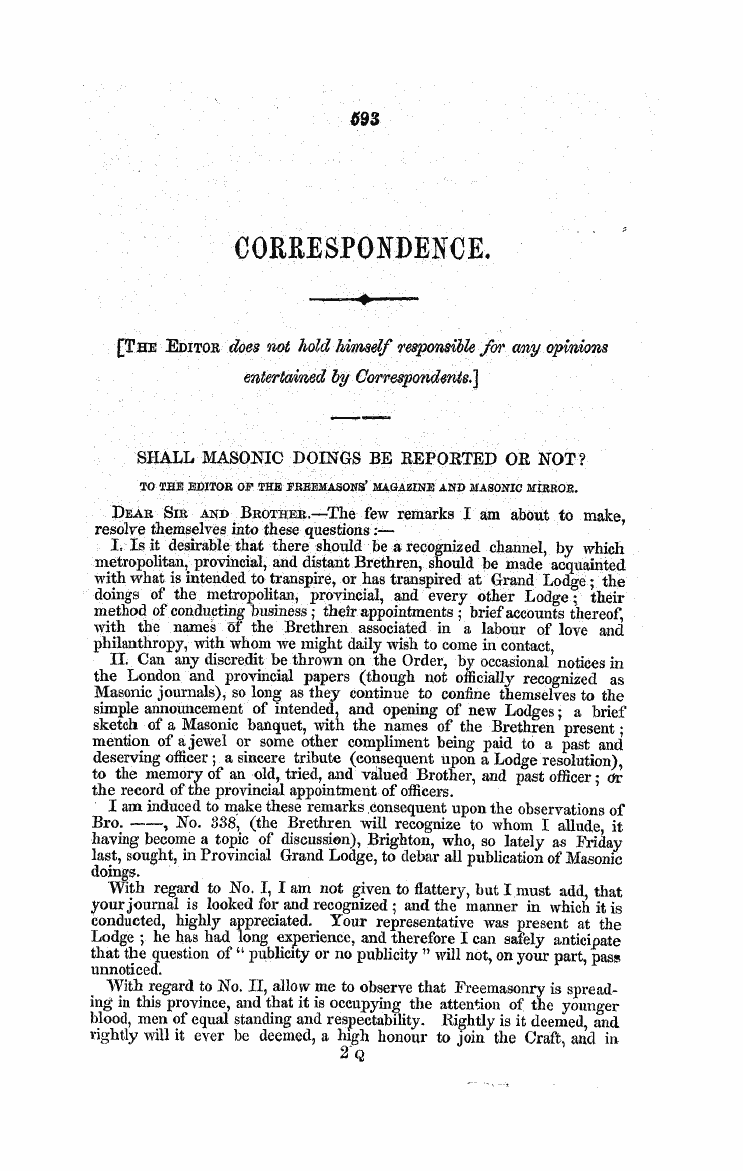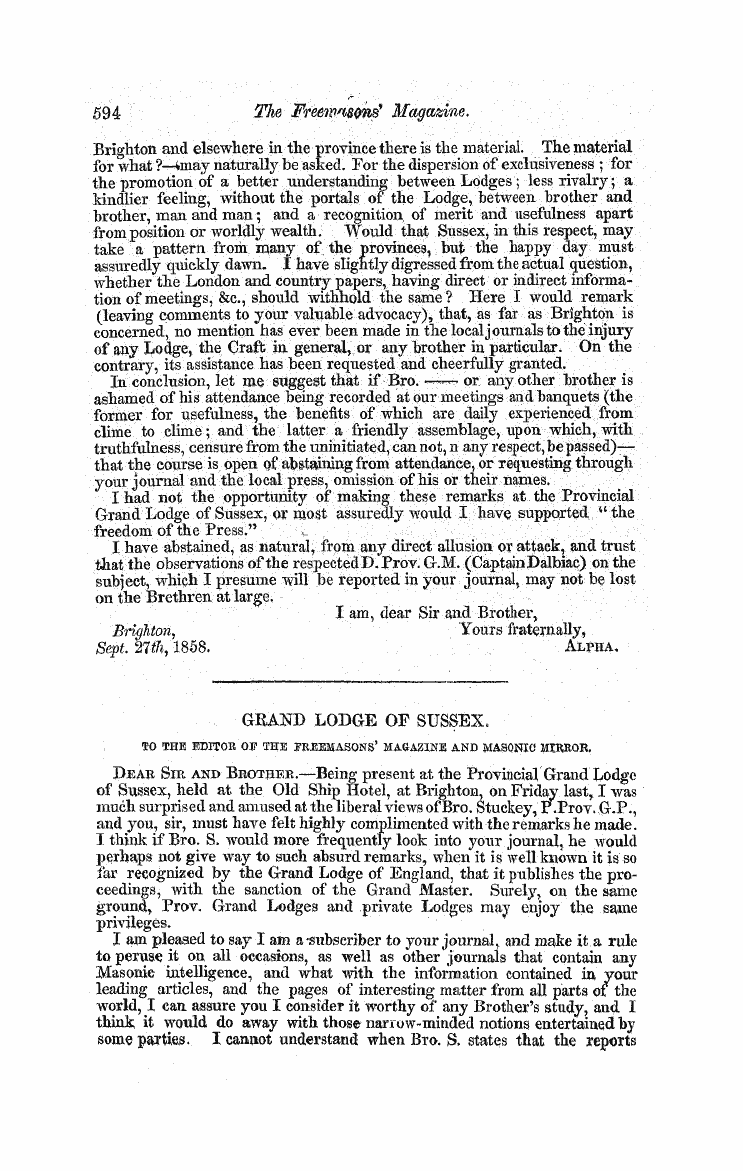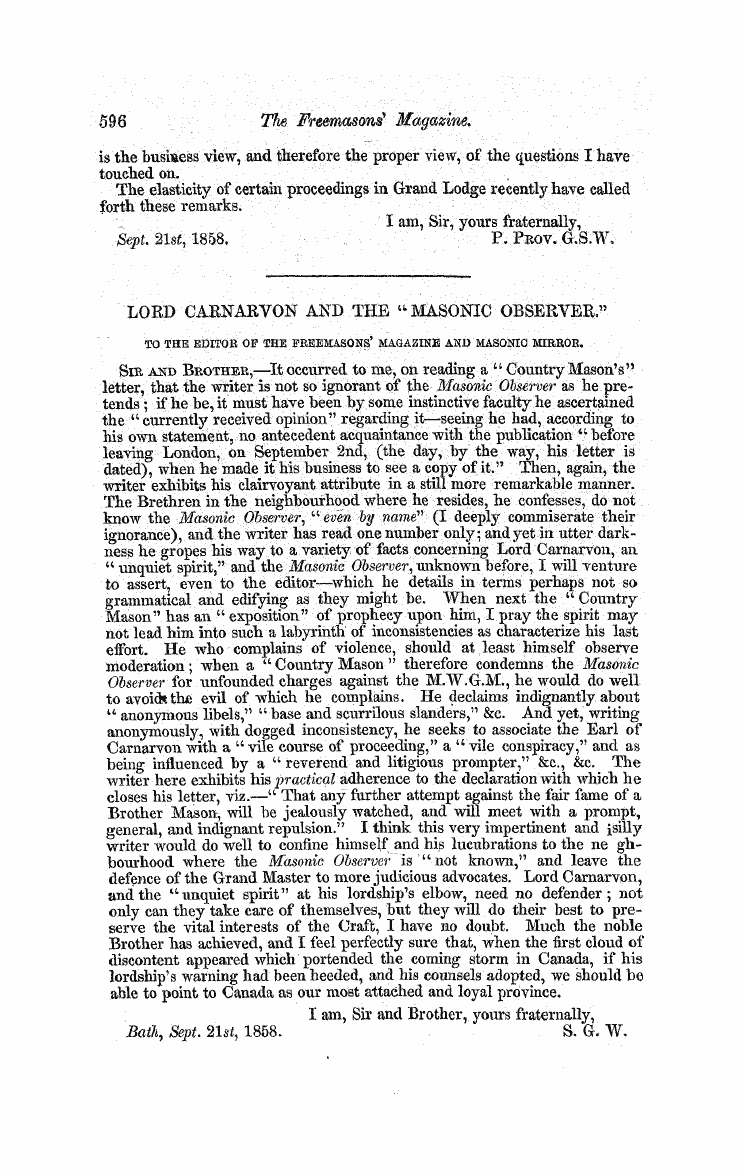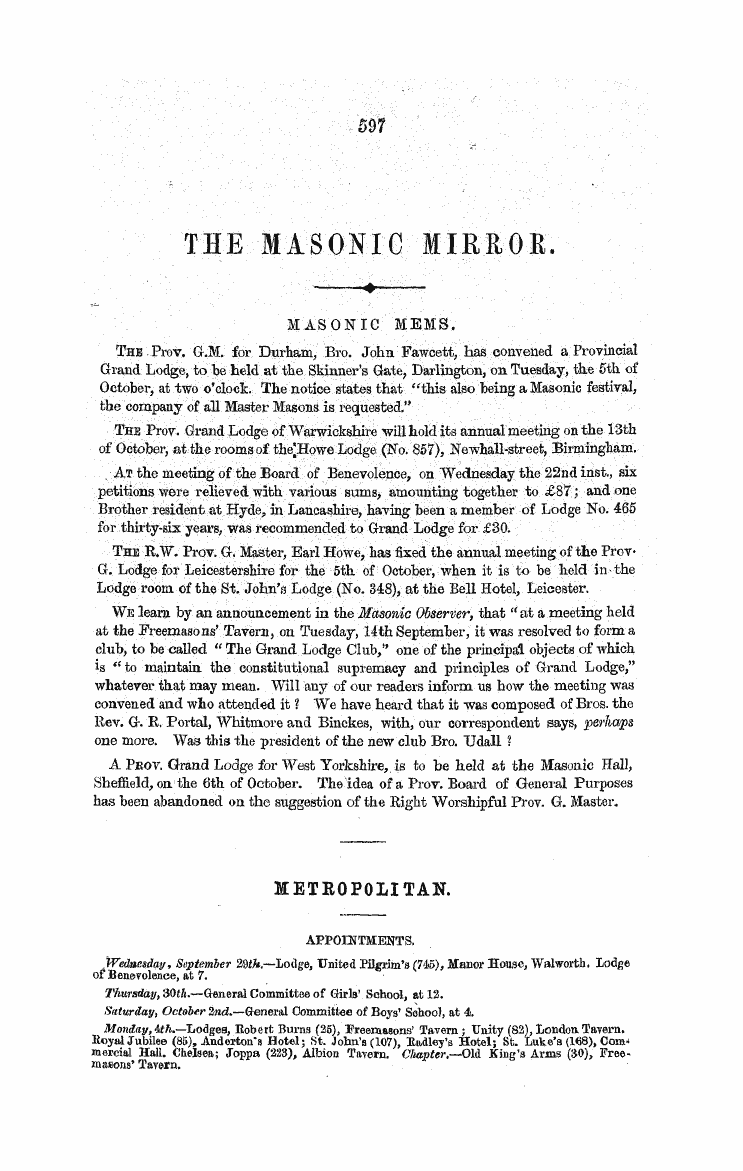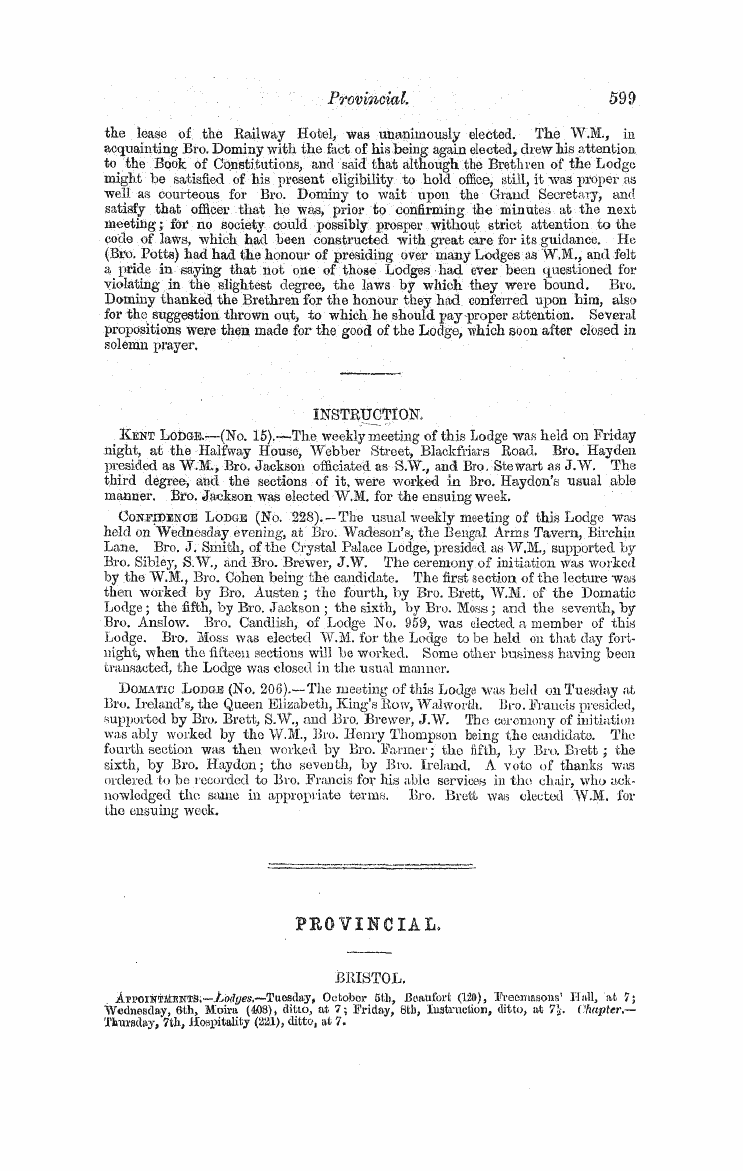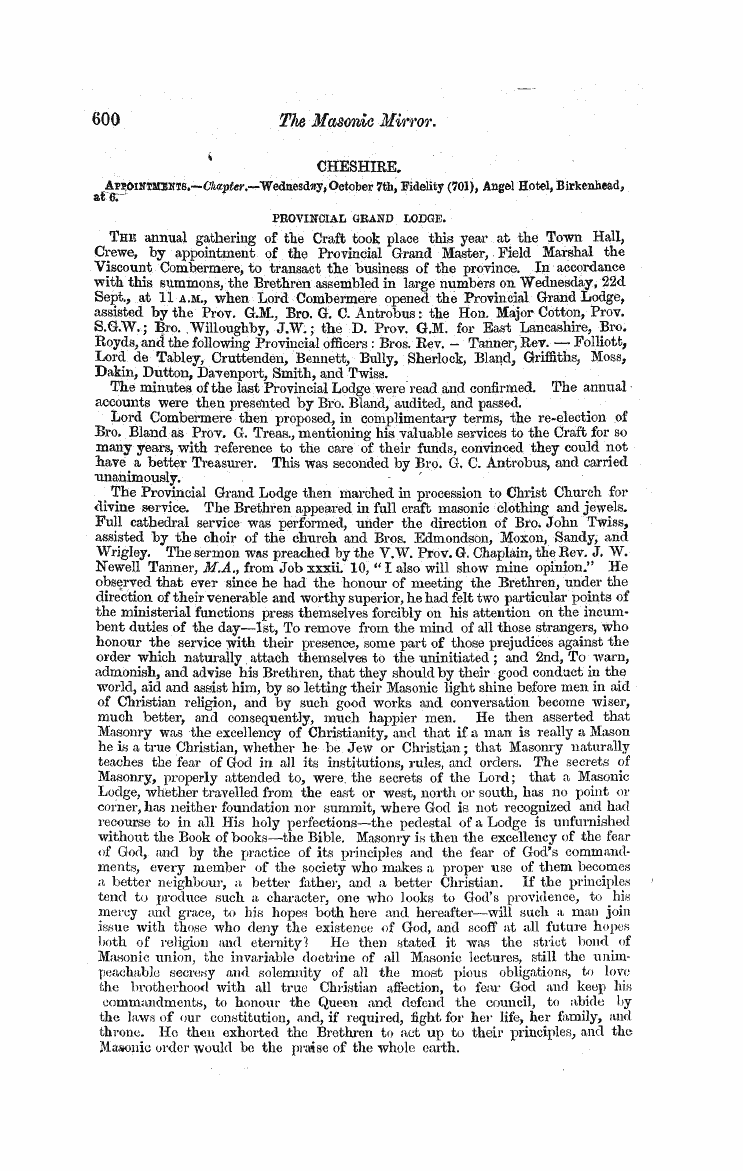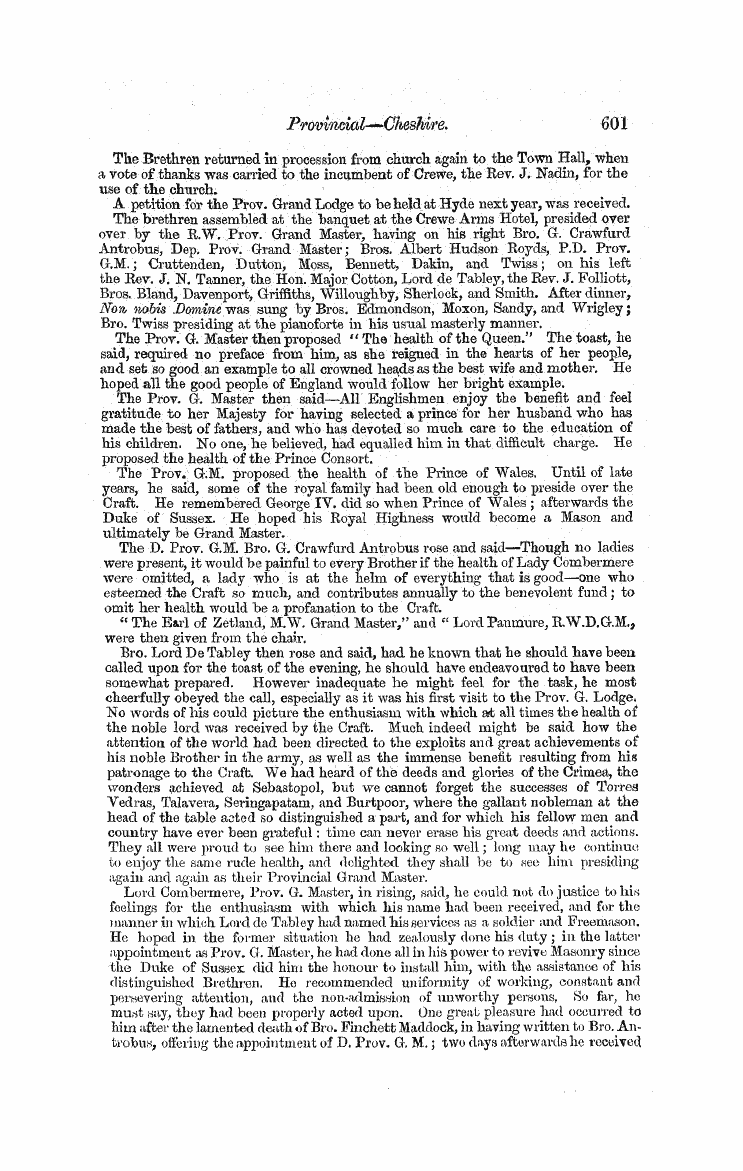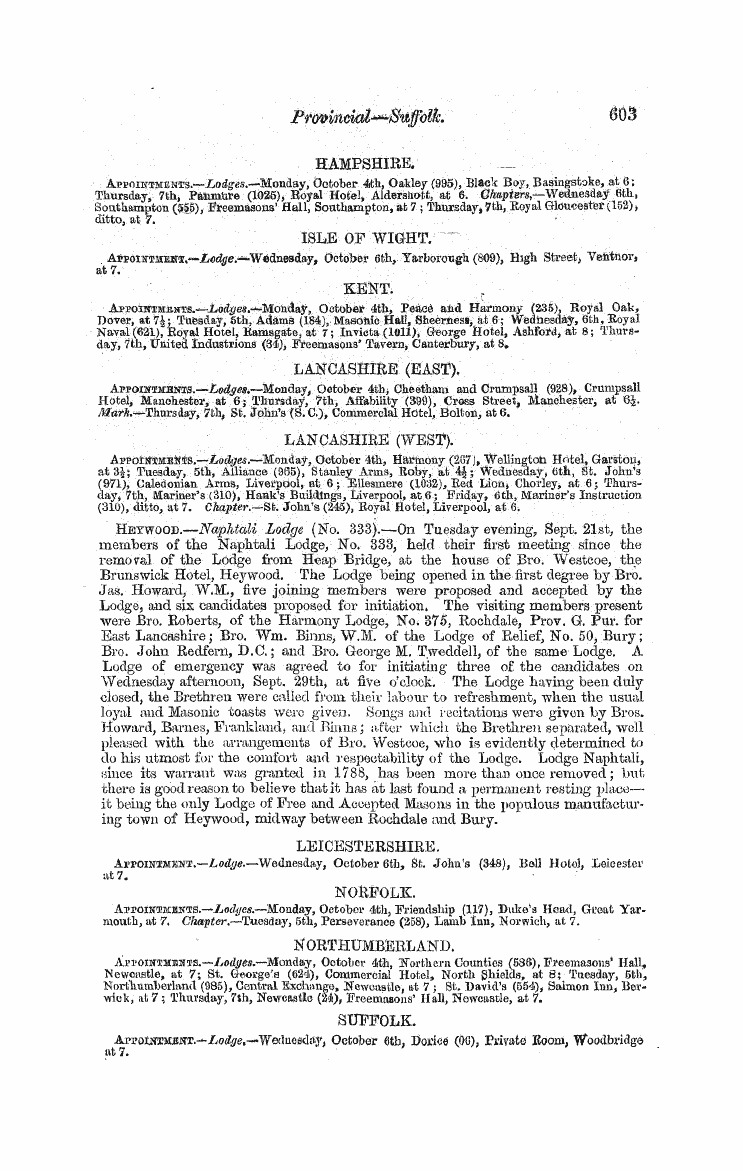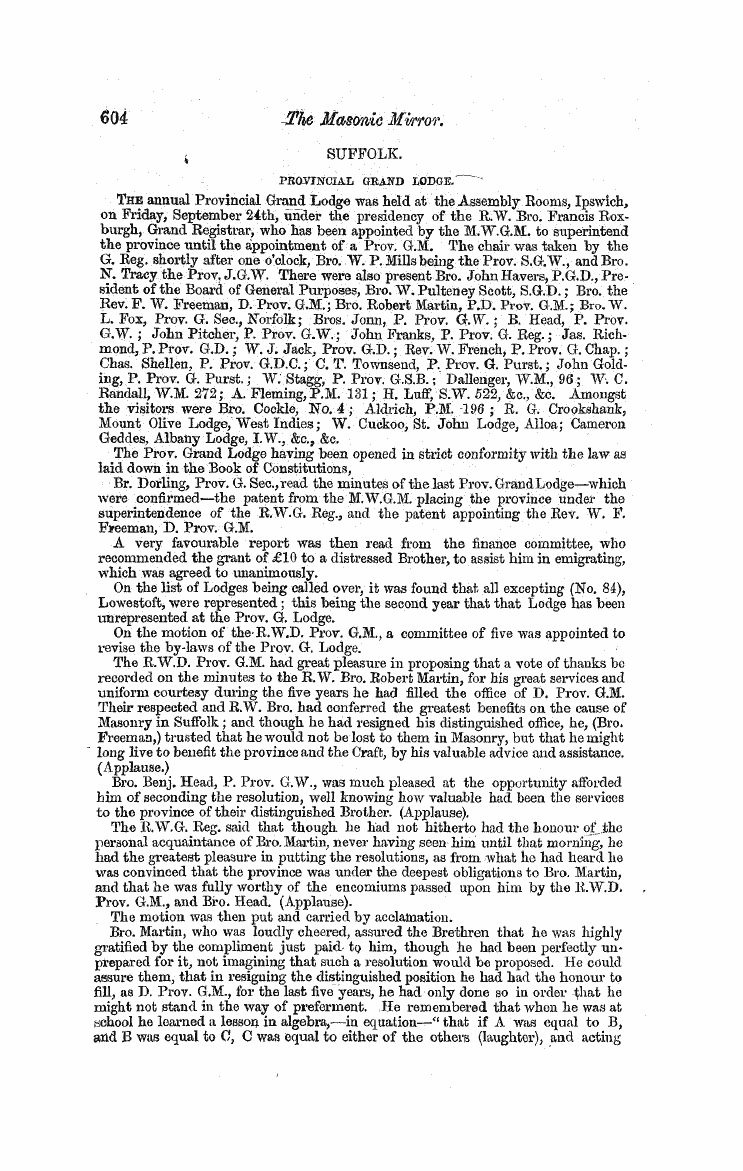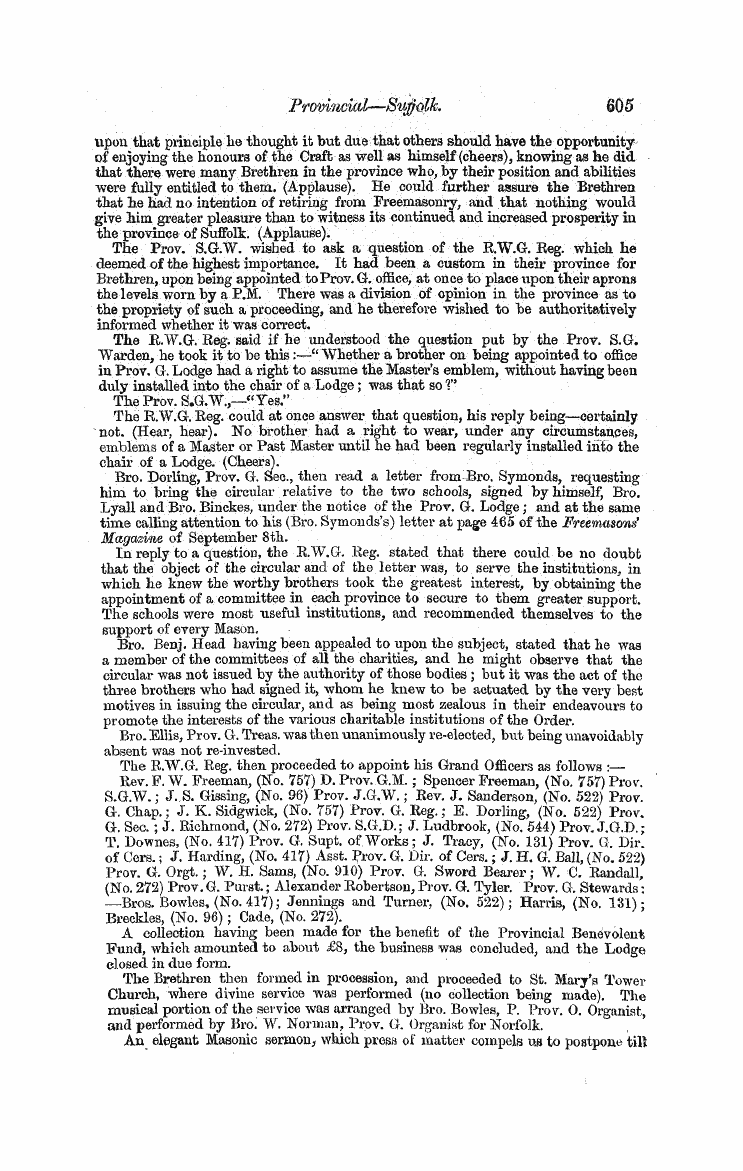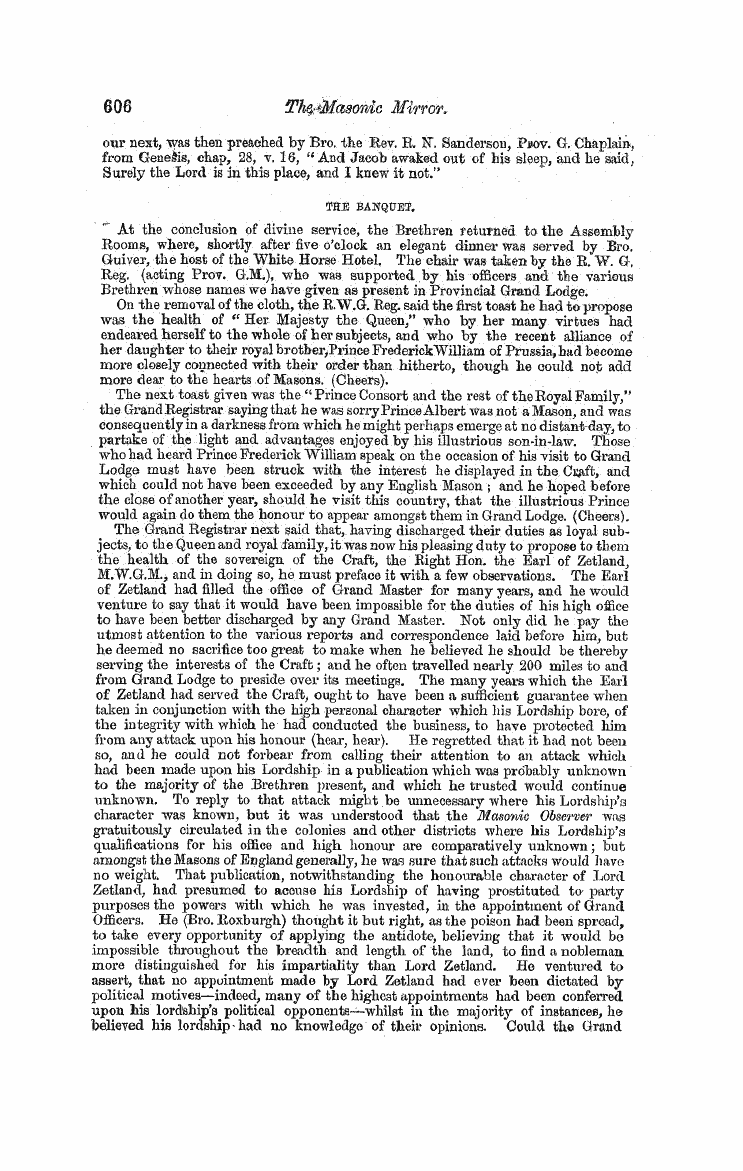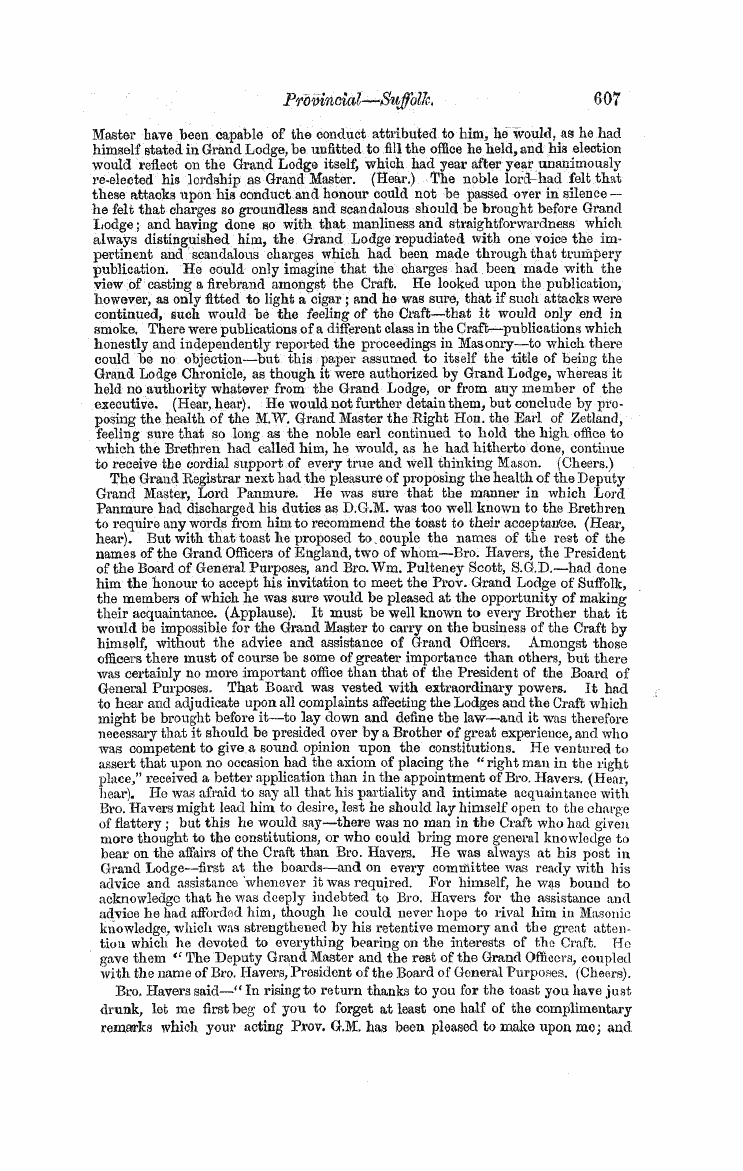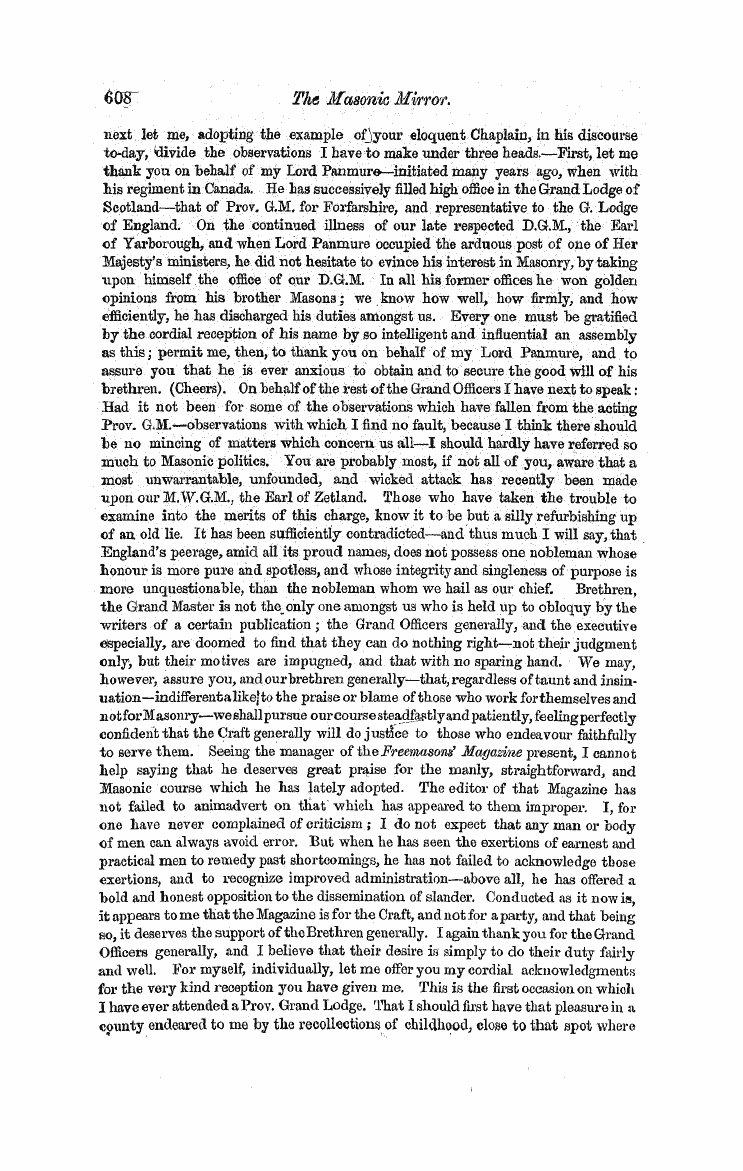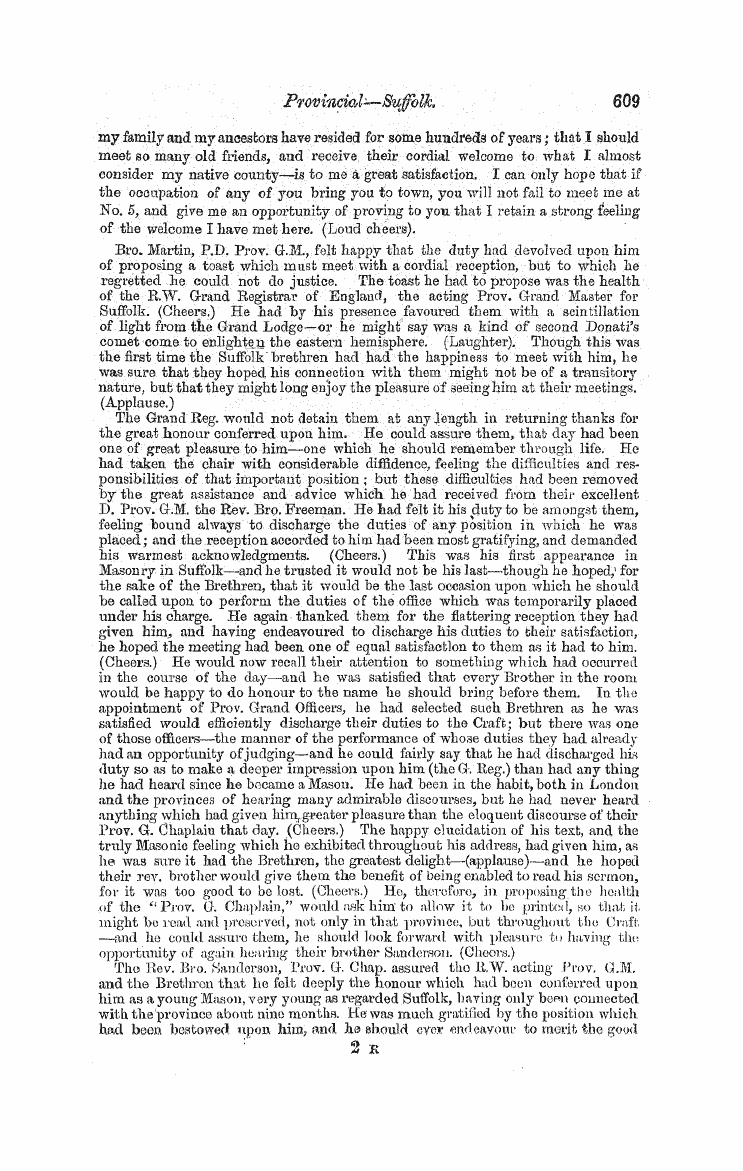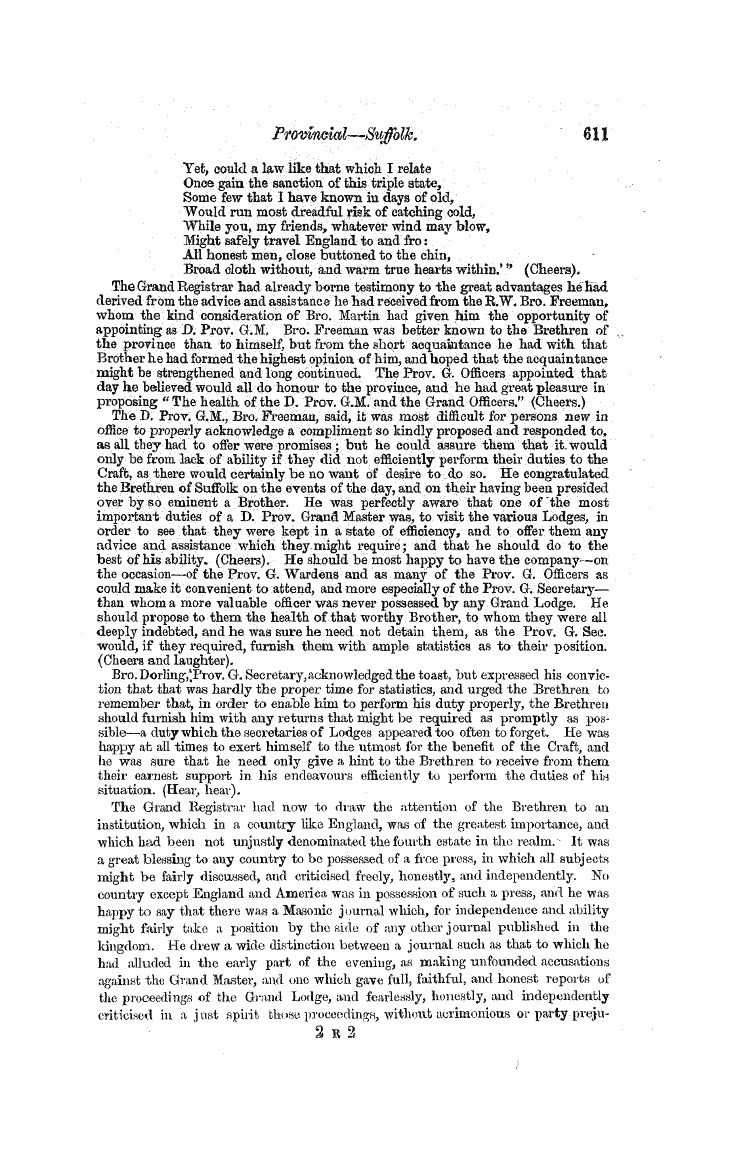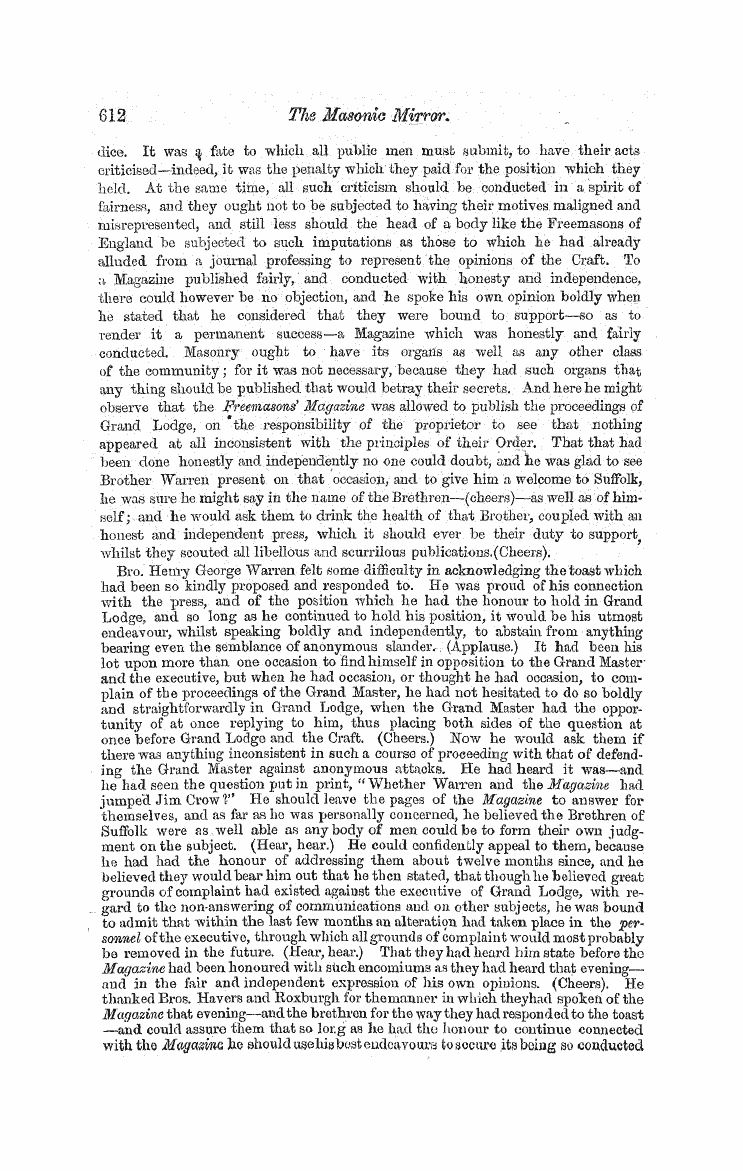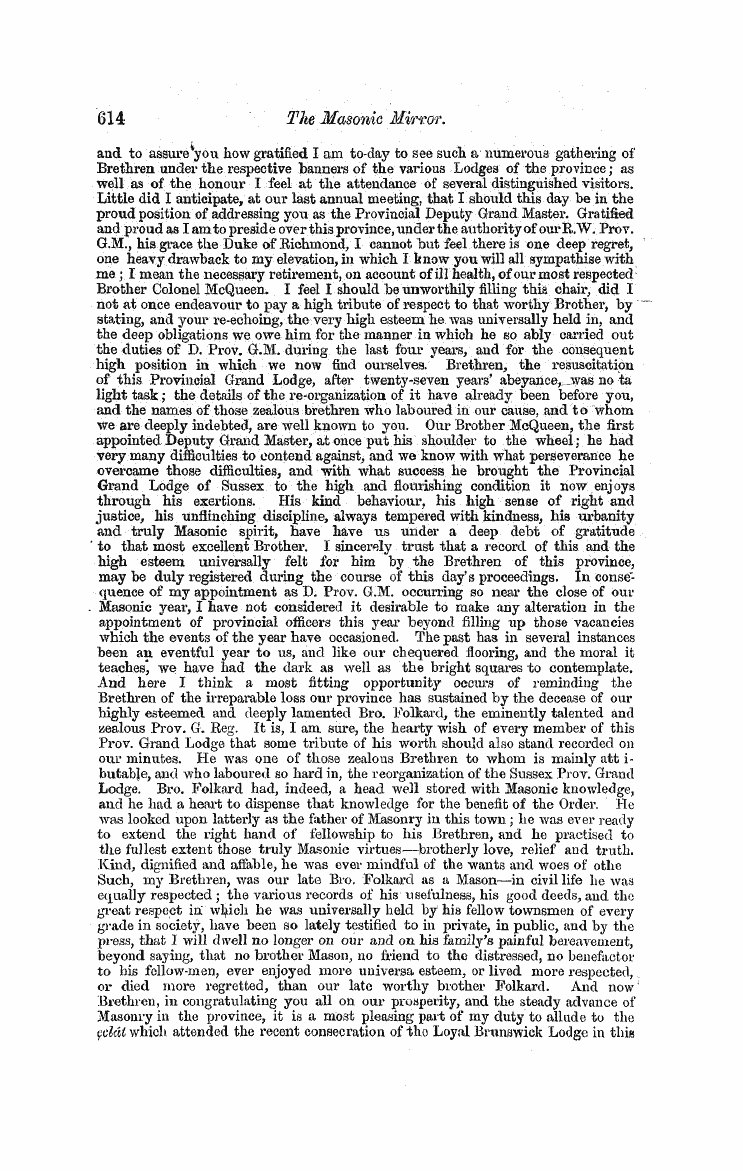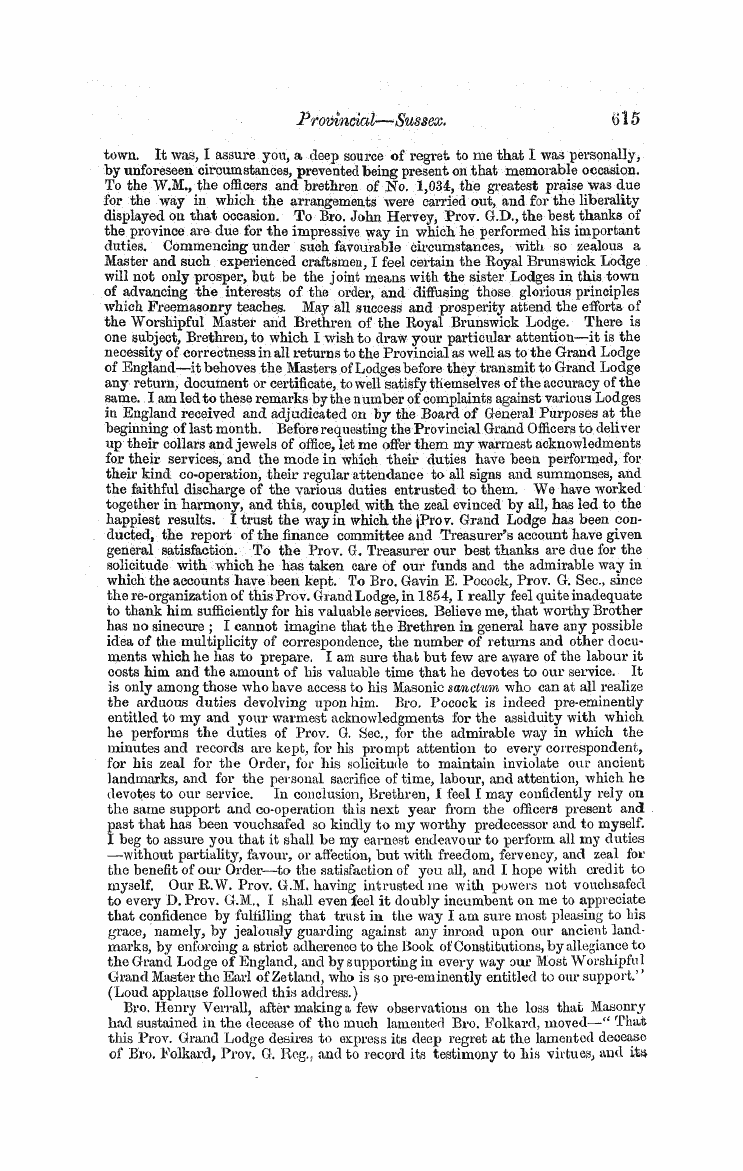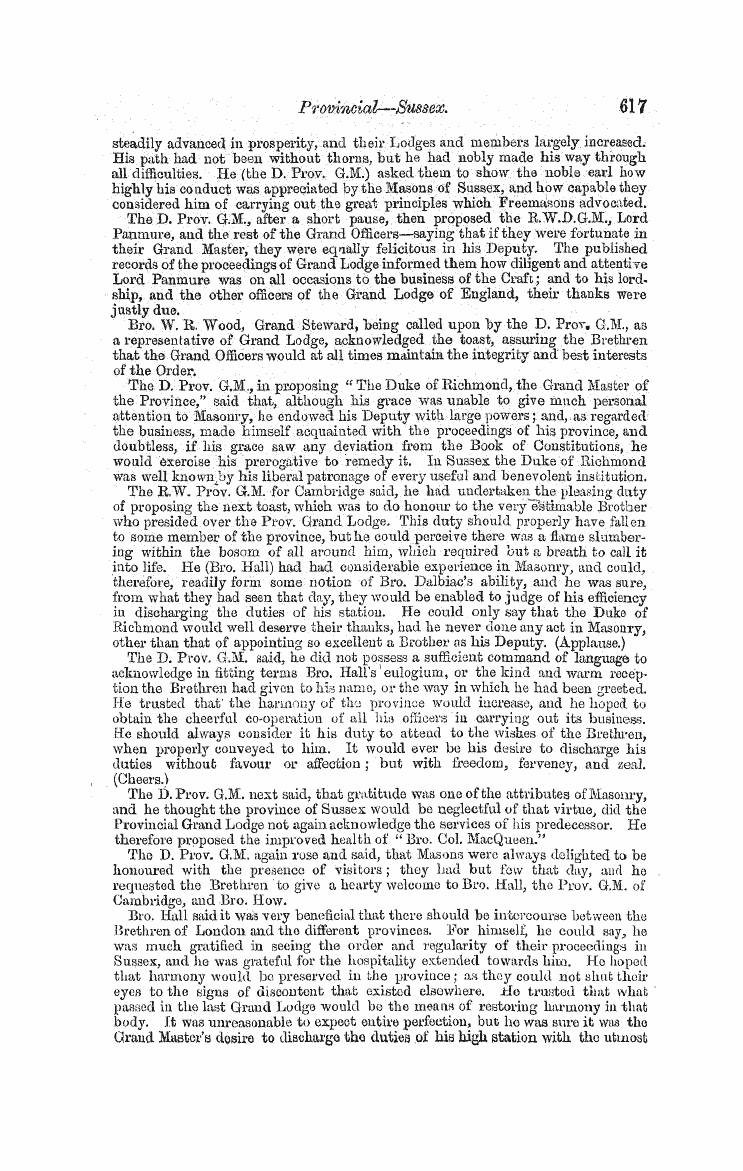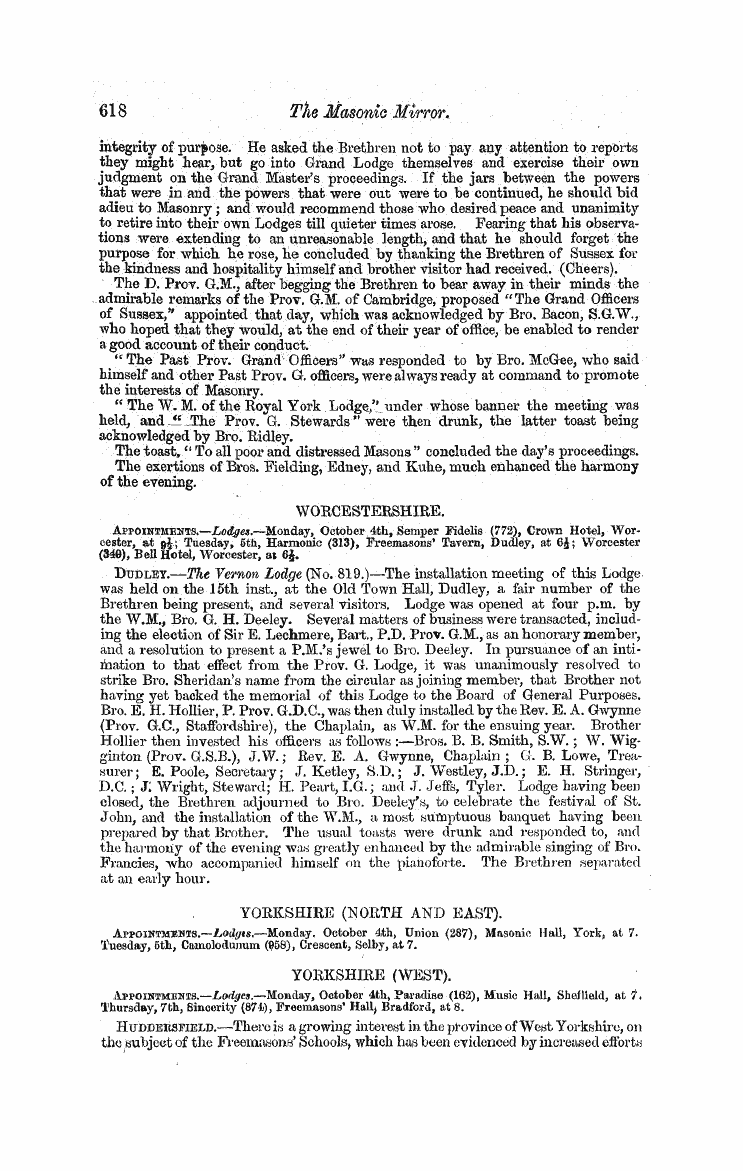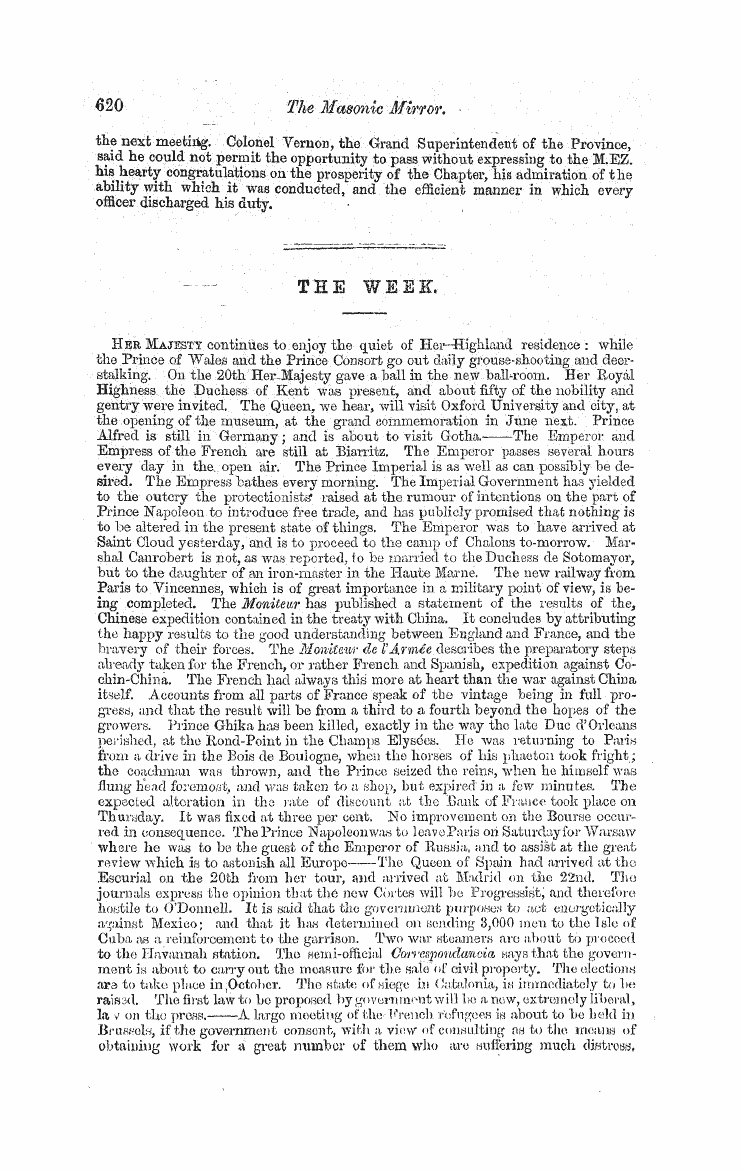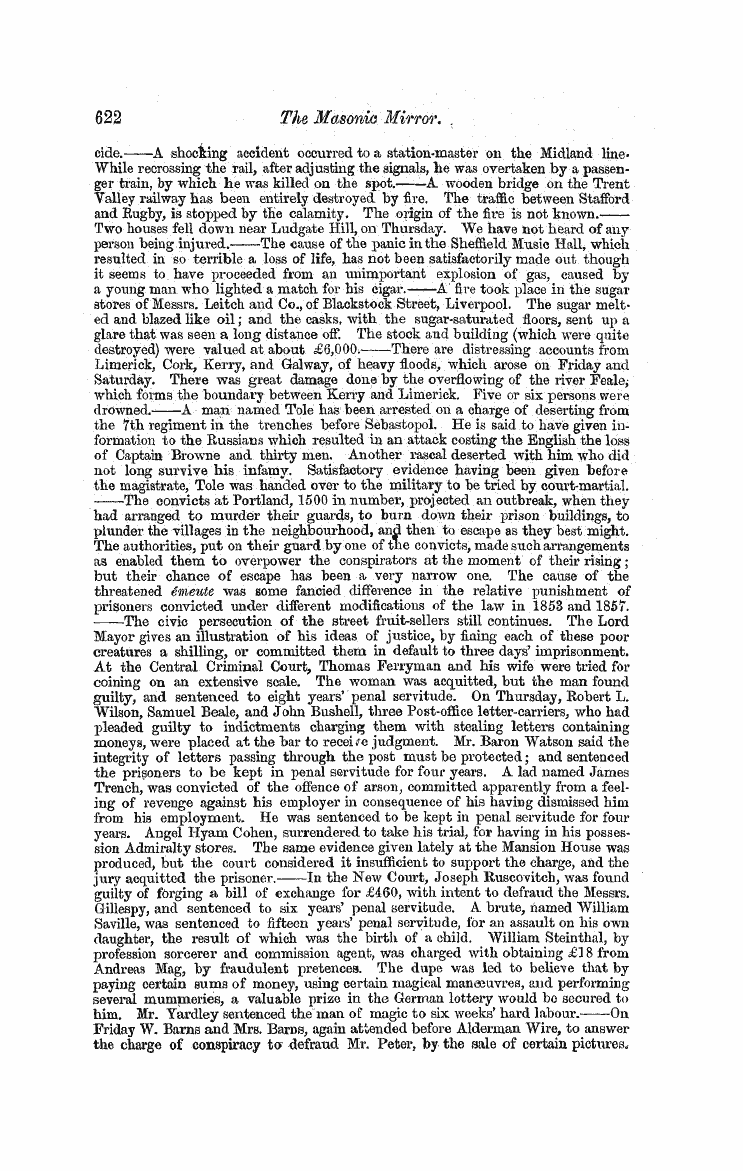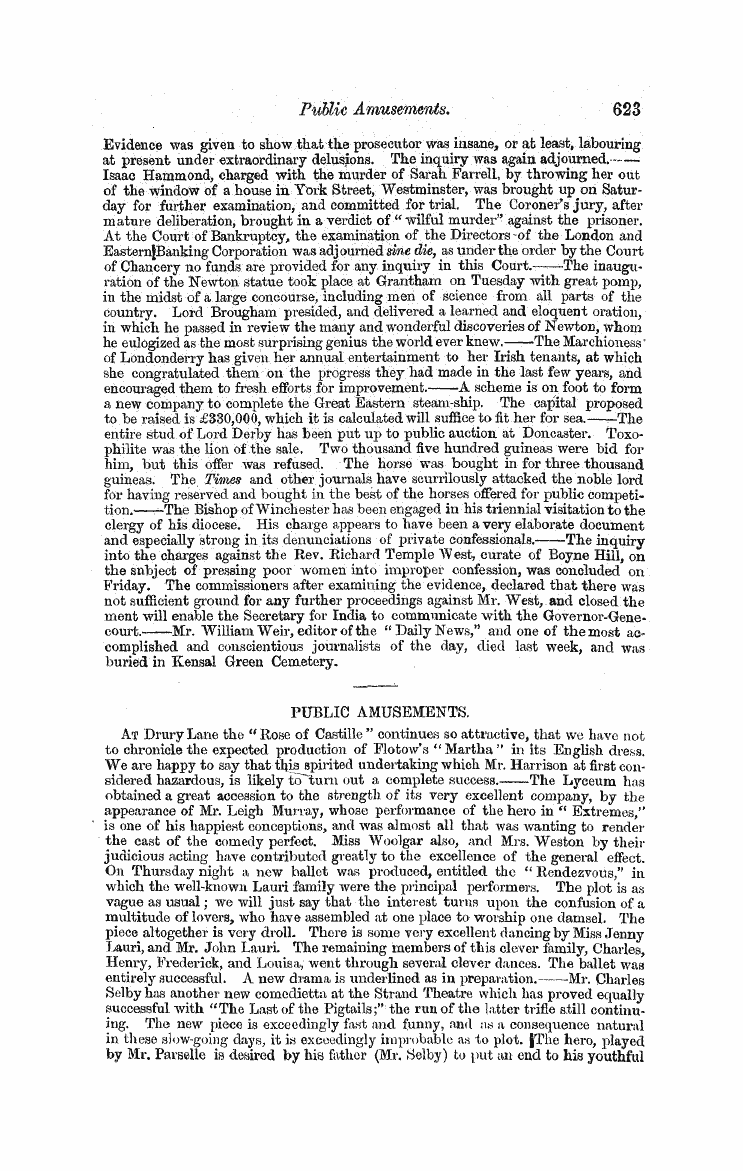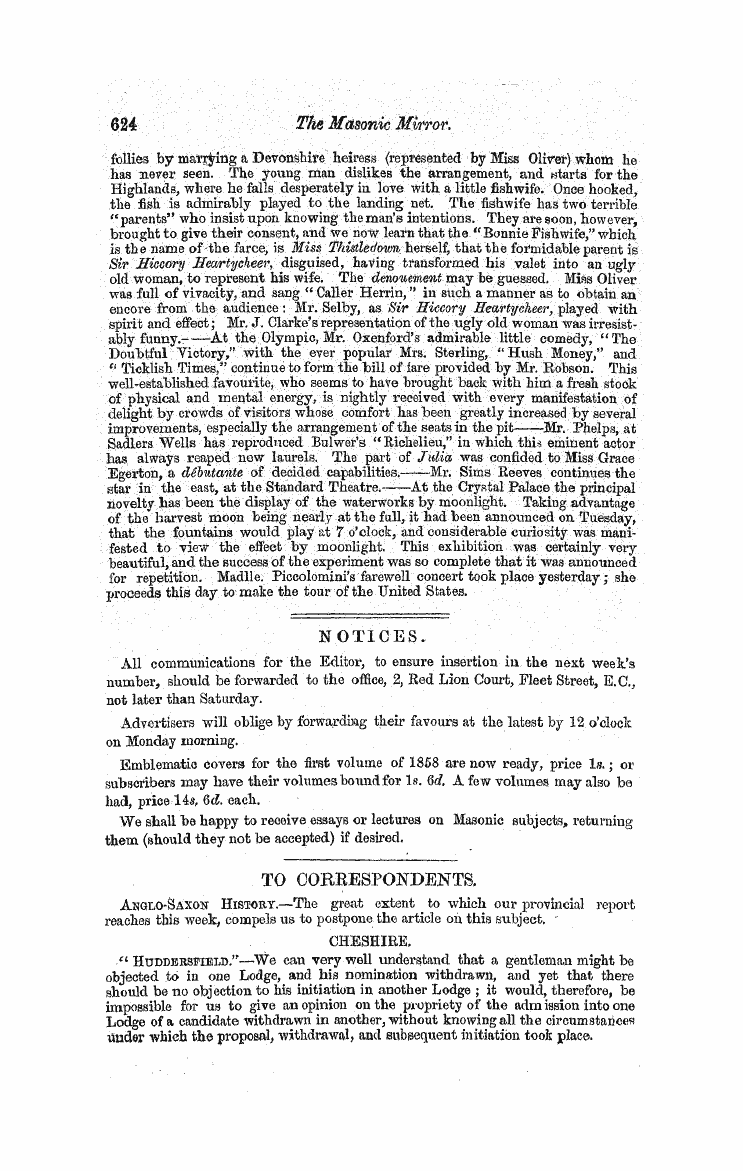-
Articles/Ads
Article THE SEGEEt SOOIEfM ← Page 3 of 10 →
Note: This text has been automatically extracted via Optical Character Recognition (OCR) software.
The Segeet Sooiefm
as we above indicated , and the latter as " Aif von Duilman : " this translation of Goethe ' s work was published in 1799 ; and Sir Walter Scott speaks of the two German works above mentioned in terms of highpraise .
Westphalia appears to have been the birth place of the Vehm ; and its origin , though not in the form which it assumed in after years , has been ascribed to Charlemagne . * Other accounts say that the earliest mention of it is in 1267 ^ in a document or instrument by which Engelbert Count of the Mark , fees one Gervin of Kikenrode ,
from feudal obligations for his inheritance of Broke , which was in the county of Mark | and it is declared to have been executed at a place called Berle , the court being presided over by Bernhard of Henedorp and the "Vehmenotes who were present . By the "V eh ~ menotes were at all times understood those who were initiated in the
secrets of the Westphalian tribunals . In anothei ? document , dated 1280 , the "Vehmenotes again appear as witnesses ; and after this time the mention of them becomes more frequent . Those who were unconnected with the association , even if they knew of its existence , never ventured to pry into its mysteries . Certain and nistantaneous death was the portion of the stranger who was seen at a place where
a tribunal was sitting , or who dared so much as to look into the books—could he even get an opportunity of so doing—which contained the laws and ordinances of the society . Death was also the portion of any member of the society who revealed its secrets ; and so strongly did this terror or some fancied principle of honour operate , that as iEneas Sylvius , afterwards Pope Pius 'II ,, the
secretary of the Emperor Frederick III ., assures us , though the number of the members usually exceeded one hundred thousand , no motive had ever induced a single one to be faithless to his trust . Still , however , sufficient materials are to be found for satisfying all reasonable curiosity on the subject . He gives the following account of its origin : —Charlemagne , having conquered the Saxons settled
in Westphalia , compelled them to relinquished the worship of idols and to embrace the Christian religion . But , as they frequently apostatized and disregarded their oaths , with a view of preventing rebellion through dread of punishment he appointed secret judges , whom he empowered to punish persons guilty of perjury , fraud , or any flagitious crime , without any previous citation , ancl without permitting them to make any defence . But as this power was likely to
be abused , he chose for this purpose 3 nen of integrity , who would not be likely to punish the innocent ; and as in consequence of this appointment many nobles and persons of inferior rank were found hanged in the woods , without any previous accusation , this summary mode of proceeding struck terror into the Westphalians and kept them in due obedience . A general belief was also prevalent that those who suffered this ignominious death had renounced the Christian faith or committed some atrocious crime . This tribunal was called * Pied a . p , 814 . Arf rl « ^ H
Note: This text has been automatically extracted via Optical Character Recognition (OCR) software.
The Segeet Sooiefm
as we above indicated , and the latter as " Aif von Duilman : " this translation of Goethe ' s work was published in 1799 ; and Sir Walter Scott speaks of the two German works above mentioned in terms of highpraise .
Westphalia appears to have been the birth place of the Vehm ; and its origin , though not in the form which it assumed in after years , has been ascribed to Charlemagne . * Other accounts say that the earliest mention of it is in 1267 ^ in a document or instrument by which Engelbert Count of the Mark , fees one Gervin of Kikenrode ,
from feudal obligations for his inheritance of Broke , which was in the county of Mark | and it is declared to have been executed at a place called Berle , the court being presided over by Bernhard of Henedorp and the "Vehmenotes who were present . By the "V eh ~ menotes were at all times understood those who were initiated in the
secrets of the Westphalian tribunals . In anothei ? document , dated 1280 , the "Vehmenotes again appear as witnesses ; and after this time the mention of them becomes more frequent . Those who were unconnected with the association , even if they knew of its existence , never ventured to pry into its mysteries . Certain and nistantaneous death was the portion of the stranger who was seen at a place where
a tribunal was sitting , or who dared so much as to look into the books—could he even get an opportunity of so doing—which contained the laws and ordinances of the society . Death was also the portion of any member of the society who revealed its secrets ; and so strongly did this terror or some fancied principle of honour operate , that as iEneas Sylvius , afterwards Pope Pius 'II ,, the
secretary of the Emperor Frederick III ., assures us , though the number of the members usually exceeded one hundred thousand , no motive had ever induced a single one to be faithless to his trust . Still , however , sufficient materials are to be found for satisfying all reasonable curiosity on the subject . He gives the following account of its origin : —Charlemagne , having conquered the Saxons settled
in Westphalia , compelled them to relinquished the worship of idols and to embrace the Christian religion . But , as they frequently apostatized and disregarded their oaths , with a view of preventing rebellion through dread of punishment he appointed secret judges , whom he empowered to punish persons guilty of perjury , fraud , or any flagitious crime , without any previous citation , ancl without permitting them to make any defence . But as this power was likely to
be abused , he chose for this purpose 3 nen of integrity , who would not be likely to punish the innocent ; and as in consequence of this appointment many nobles and persons of inferior rank were found hanged in the woods , without any previous accusation , this summary mode of proceeding struck terror into the Westphalians and kept them in due obedience . A general belief was also prevalent that those who suffered this ignominious death had renounced the Christian faith or committed some atrocious crime . This tribunal was called * Pied a . p , 814 . Arf rl « ^ H































































































































































































